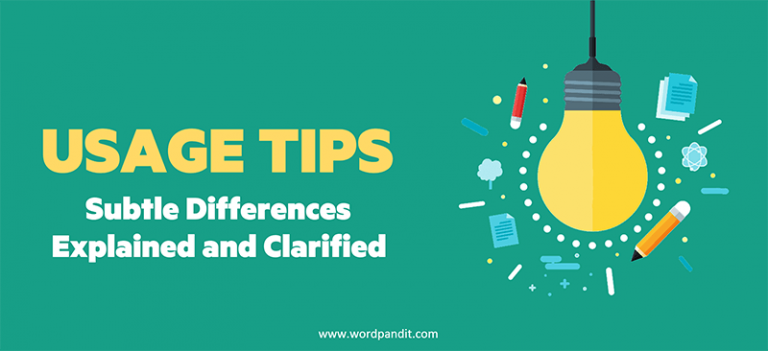🎨🗳️ Canvas vs. Canvass: Clearing the Confusion 🎨🗳️
Ever found yourself tangled up with the words canvas and canvass? 🤔 You’re not alone! Despite sounding nearly identical, these two words mean completely different things. Mixing them up is easy, but understanding the differences is crucial—especially if you want to avoid confusion when discussing art 🎨 or election campaigns 🗳️. Whether you’re an artist 🎨, a politician 🗳️, or just someone trying to get your words right ✍️, knowing when to use canvas versus canvass can make all the difference. Let’s dive in and untangle this word pair together. ✨
Canvas
Definition: Canvas (pronounced “KAN-vuhs”) is a heavy-duty fabric 🧵 often used for making sails ⛵, tents ⛺, or most commonly, as a surface for painting 🎨. It is a versatile material, well-known for its durability 💪 and strength, and has been a staple for artists 🖌️ and adventurers alike for centuries. ⛺🖌️
Pronunciation: /KAN-vuhs/ 🔊
Etymology: The word canvas originates from the Latin word “cannabis” 🌿, meaning “hemp.” Historically, canvas was made from hemp 🌿, which gives us a peek into its sturdy and utilitarian beginnings. This connection to hemp highlights its ruggedness and long history of use in various practical applications, from ship sails ⛵ to the art world 🖼️.
Usage Examples:
- The artist 🎨 prepared her canvas for a new masterpiece 🌟, carefully applying a layer of gesso to create the perfect painting surface. 🎨
- The tent ⛺ was made from thick canvas, which kept the rain 🌧️ out effectively, ensuring the campers stayed dry through the storm. 🌧️🏕️
- Sailors ⛵ relied on canvas sails to navigate the oceans 🌊, trusting in the fabric’s strength and resilience. ⛵
Synonyms & Antonyms:
- Synonyms: tarp 🖌️, cloth 🧵, fabric, sailcloth ⛵
- Antonyms: silk 🕊️, paper 📜, plastic ♻️
Canvass
Definition: Canvass (pronounced “KAN-vuhs”) is a verb that means to solicit votes 🗳️, opinions 🗣️, or orders 📋. It can also mean examining something thoroughly 🔍. This word is often used in political contexts, where candidates 🗳️ or their supporters 🤝 reach out to voters to gather support 💬 or understand public opinion. 📊
Pronunciation: /KAN-vuhs/ 🔊
Etymology: This word comes from the same root as canvas, referring originally to the act of “sifting” 🌾 through something, as in a mesh cloth. Over time, it evolved into the idea of sifting through public opinion. The connection to sifting suggests a thorough and deliberate process, much like separating grains 🌾 from chaff.
Usage Examples:
- The politician 🗳️ went door-to-door 🚪 to canvass support 🤝 for the upcoming election, hoping to understand the concerns of the local residents. 🚪🗳️
- The committee 📝 will canvass the neighborhood 🏘️ to gather signatures ✍️ for the petition, ensuring they meet the required number of supporters. 📝🤝
- Volunteers 🙋 were sent out to canvass opinions 🗣️ on the new community center 🏢, aiming to gather feedback 📊 from as many residents as possible. 🏢🗣️
Synonyms & Antonyms:
- Synonyms: survey 📋, solicit 🤲, poll 📊, campaign 🚩
- Antonyms: ignore 🚫, neglect 😶, overlook 👀
Comparison and Contrast
The easiest way to keep canvas and canvass apart is to think of their primary associations. Canvas is all about art 🎨 and sturdy fabric 🧵, while canvass involves reaching out to people 🤝, usually for votes 🗳️ or opinions 🗣️. Picture an artist 🎨 painting on a canvas versus a politician 🗳️ canvassing a neighborhood 🏘️. One works with a material 🧵, the other works with people 👥.
Mnemonic Device: To remember the difference, think: Canvas is for art 🎨, canvass is for asking 🤔. The extra “s” in canvass stands for soliciting. 🤲
Related Confusing Word Pairs
- Affect vs. Effect: One is a verb (to influence 🌀), the other is a noun (the result ✅).
- Compliment vs. Complement: One is about praise 🥂, the other is about completing something 🧩.
- Elicit vs. Illicit: One means to draw out 🔄, the other means illegal 🚫.
- Principle vs. Principal: One is a rule 📜, the other is a person 👨🏫 or main idea 💡.
Conclusion
Understanding the difference between canvas and canvass doesn’t have to be complicated. 💡 Just remember: one is a material 🖼️, the other is an action 🤲. With these tips 📝, examples 🎨, and a bit of practice 📚, you’ll never mix them up again! Whether you’re creating a masterpiece 🎨 or gathering opinions 🗳️, you’ll know exactly which word to use. Keep practicing ✨, and soon distinguishing between canvas and canvass will feel like second nature. 🌟
Confusing Words: Canvas vs. Canvass
1. The artist 🎨 bought a new ___ to paint her next landscape. 🏞️
2. The volunteers 🙋 went door-to-door 🚪 to ___ for donations. 🗳️💰
3. Canvas is used to describe the act of soliciting votes. ✅❌
4. Which word is a synonym of “poll”? 📊
5. The politician 🗳️ needed to ___ the area 🏘️ for more support 🤝.
6. Which of the following is NOT associated with the word “canvas”? ❓
7. She bought a large ___ 🖼️ for her art project 🎨 while her friend went out to ___ the neighborhood 🏘️.
8. Which word originates from the Latin term meaning “hemp” 🌿?
9. The word “canvass” can be used to describe a piece of fabric. ✅❌
10. The volunteers 🙋 decided to ___ opinions 🗣️ before setting up their art stand 🎨 with a large ___.













